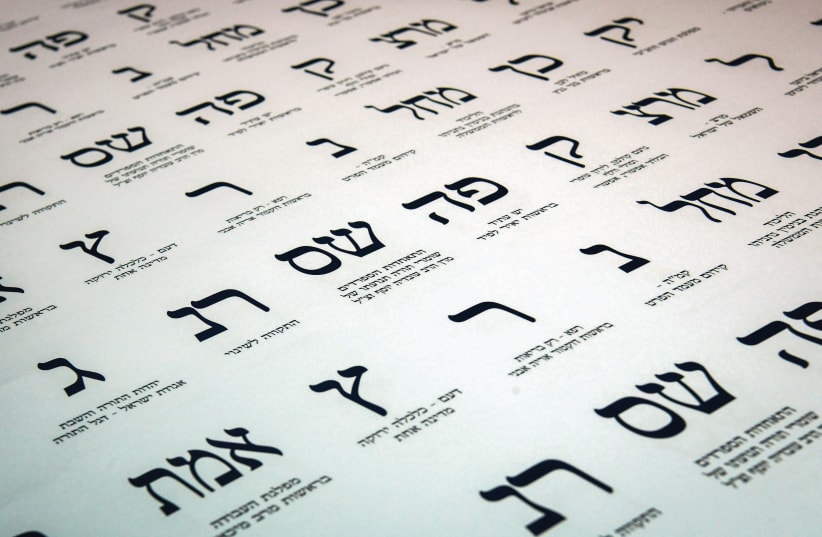The final polls conducted until the Friday before Election Day on Tuesday, March 23, all suggested continued political deadlock, as neither the anti- nor the pro-Netanyahu blocs are expected to receive 61 seats in order to form a government.Naftali Bennett's Yamina Party, however, which is currently not committed to either bloc, could give the anti-Netanyahu parties a coalition.
The final poll broadcasted by KAN Channel 11 gave Netanyahu's Likud Party 31 seats, followed by Yesh Atid with 19 seats, New Hope and Yamina tied for the third largest party with nine seats each, and the Joint List is stable at eight. The ultra-Orthodox Shas Party also has eight, while United Torah Judaism (UTJ) and Yisrael Beytenu have seven seats each.
Labor and the Religious Zionist Party received five seats each, while Blue and White, Meretz and Ra'am crossed the electoral threshold with four seats each.
According to Channel 11's poll, the anti-Netanyahu bloc would have 56 seats, while the pro-Netanyahu bloc would receive 51 seats. Yamina and Ra'am, which have both not declared support for either bloc, hold the balance of power. Yamina's nine seats could give the anti-Netanyahu bloc a coalition, and together with Ra'am, they could both give one to the pro bloc.
Channel 12's poll also suggested continued deadlock. Compared to the similar Channel 11 poll, the Likud gains a seat at the expense of Yesh Atid, and Labor gains one at the expense of the Religious Zionist Party. According to the poll, the Likud Party would receive 32 seats, followed by Yesh Atid with 18, New Hope and Yamina tied at nine each, the Joint List and Shas at eight, and United Torah Judaism and Yisrael Beytenu at seven.
At the lower end were Labor with six seats, followed by Religious Zionist, Blue and White, Meretz and Ra'am all receiving four seats each.
The blocs remain the same, with anti-Netanyahu again receiving 56 seats and pro-Netanyahu receiving 51, leaving Yamina and Ra'am as the kingmakers again.
The last poll broadcasted by Channel 13 showed similar results. Compared to the Channel 12 poll, New Hope and Yamina both gain a seat at the expense of the Likud, and Yisrael Beytenu loses a seat to Religious Zionist. Likud was still far in the lead with 30 seats, followed by Yesh Atid with 18, New Hope and Yamina tied for third place at 10 seats each, Shas and the Joint List with eight and the UTJ retaining seven seats.
Both Labor and Yisrael Beytenu would receive six seats each and the Religious Zionist Party five, followed by Blue and White, Meretz and Ra'am again crossing the electoral threshold with four seats each.
In this scenario, the anti-Netanyahu bloc would again receive 56 seats, while the pro-Netanyahu bloc would receive one less at 50 seats, again leaving Yamina and Ra'am as kingmakers.
Panels Politics' poll, done by The Jerusalem Post's sister publication Maariv, showed an even greater spread between the anti- and pro-Bibi blocs, with 57 and 49 respectively. While it also gave Likud a low of 30 seats but 19 seats to Lapid's Yesh Atid, Yamina and Ra'am remain the same with 10 and four seats respectively.Direct Polls, which exactly predicted the last election's results according to srugim, gave even more power to Bennett's Yamina Party. It predicted the least number of seats among these final polls to Yesh Atid (17), Yamina (8), New Hope (7), the Joint List (7), and Labor (4), while giving the most seats to Shas (9), Yisrael Beytenu (9) and Blue and White (7). Filling out the poll were UTJ with seven, Religious Zionists with five and Meretz and Ra'am with four each.Predicting Likud to win a high of 32 mandates like in the Channel 12 poll, the pro-Netanyahu bloc rose to 53 seats while the anti-Netanyahu bloc fell to only 55 seats. Yamina's eight seats, although the fewest in these polls, could therefore give either bloc enough mandates – just enough for Netanyahu – to form a coalition of at least 61 seats.These polls will be the last before the election on March 23 in accordance with Israel's election campaign laws.
Natan Rothstein contributed to this report.
